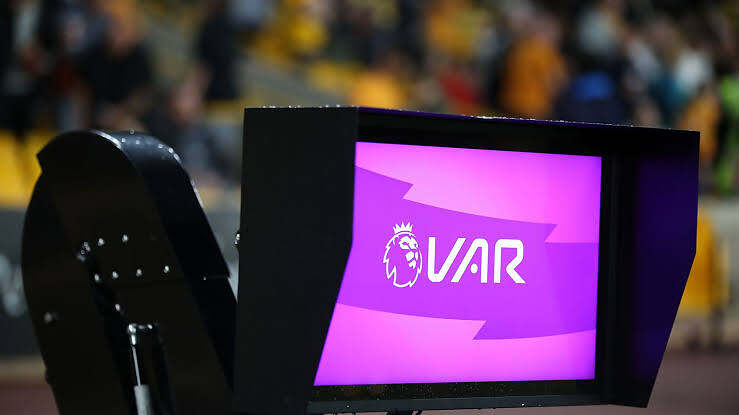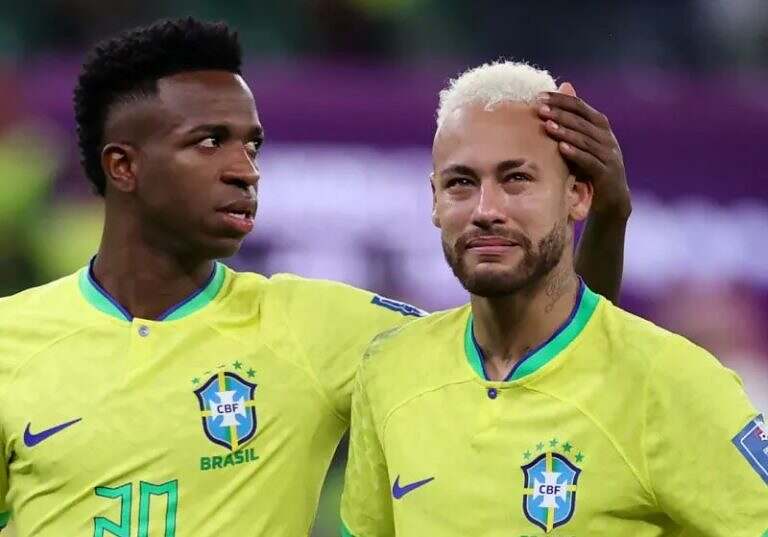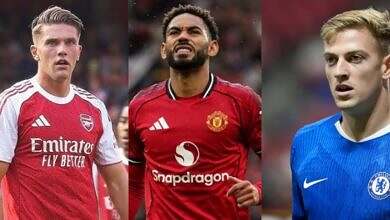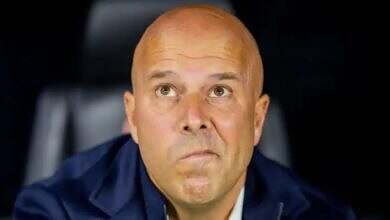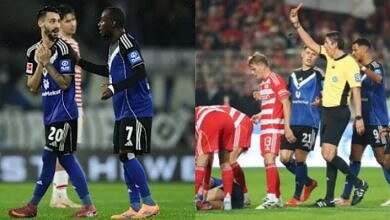African football legends: Top 10 players who made history in Europe
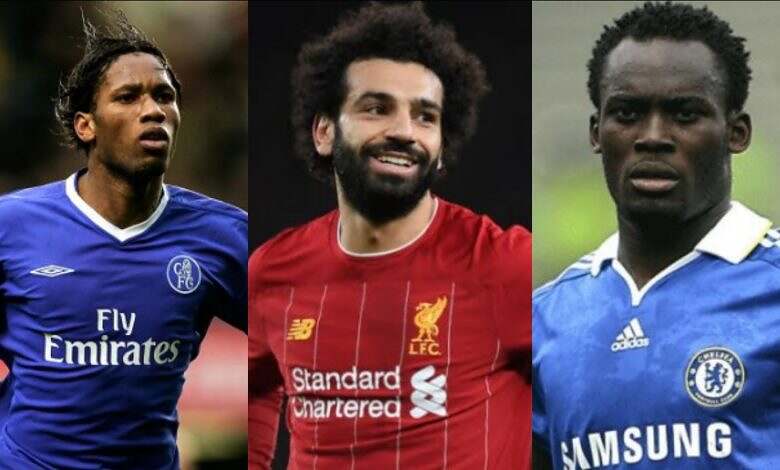
Football has always been about moments, the kind that make you jump off the sofa, lose your voice in a stadium, or even tear up when you least expect it. Today, we celebrate the African football legends who created some of those unforgettable moments in Europe, the players who paved the way for the stars we cheer for now.
For African players, those moments often carried extra weight. They weren’t just scoring goals or lifting trophies, they were breaking barriers, carrying entire nations’ hopes on their backs, and proving to Europe that talent from the continent could stand shoulder to shoulder with the very best.
I still remember watching clips of Roger Milla dancing by the corner flag in 1990, even people who didn’t care about football suddenly knew Cameroon.
Or Drogba in Munich, dragging Chelsea back into a final they had no right to win. You cannot forget those moment easily, not just because of the football, but because of the stories behind the players.
That’s why when we talk about Salah, Mané, Osimhen and this so-called “golden generation,” we’ve got to rewind the tape.
Before these guys, there were pioneers who faced racism, culture shock, and the pressure of being “the first” yet still changed European football forever.
Trending
Right now we talk about a golden generation like Salah, Mané and Osimhen players who look unstoppable. But those modern stars didn’t arrive out of nowhere.
These top players we watch today didn’t just arrive at the top on their own. They followed a road built by African football legends who made history in Europe.”
But who were those pioneers? Who left family and comfort behind, faced pressure and racism, and still changed the game for everyone who came after?
What does “making history” mean?
When I say “made history” I don’t mean only goals or highlight reels. I mean real, measurable impact that changed how clubs, coaches and fans saw African players.
1. Breaking barriers. Were they the first to do something obvious, first to win a specific award, to star in a certain club, or to change the route for future players?
2. Sustained elite performance. Short bursts are great, but did they perform at the top level for years in big European leagues and competitions?
3. Trophy cabinet and team impact. Did they carry teams to real trophies, league titles, cups and Champions Leagues. And were they a central part of those wins?
4. Individual recognition. Ballon d’Ors, African Player of the Year awards, Golden Boots and the like matter.
5. Cultural and social impact. Did they move headlines, inspire kids back home, or become more than a player, a symbol or leader?
That’s why you’ll see players who changed the way Europe scouted Africa, players who lifted trophies, and players who became national icons.
Top 10 African players who made history in Europe
10.) Nwankwo Kanu (Nigeria)
Kanu is the kind of story every football fan loves. He arrived in Europe with raw skill and a smile, but his career takes on extra meaning because of what happened off the pitch.
After early success with Ajax and Inter, he became an Arsenal and Portsmouth favourite. Then came the health scare, a serious heart defect that could have ended everything.
He had surgery, returned to top-level football, and kept winning fans with a soft touch and a knack for the dramatic.
Kanu’s best moments weren’t only trophies. He scored big goals, but he also used his platform, the Kanu Heart Foundation has funded surgeries and health projects, and Kanu himself has spoken about how saving lives matters more than silverware.
That’s part of why people remember him. He showed future African players that setbacks can be turned into something larger than football.
Not just talent, but a life story that linked triumph on the pitch with real social impact off it.
9.) Michael Essien (Ghana)
Essien arrived in Europe relatively quietly, but he left a loud legacy.
At Lyon he learned the craft, at Chelsea he became a true engine, a midfielder who could smash tackles, drive forward, and score from time to time and when he did score, it was often important.
That thunderbolt volley against big opponents is still remembered because it came at the top level, in the Champions League.
Essien proved African midfielders could be the physical and tactical anchor for a European superclub.
He helped Chelsea win big trophies during one of the club’s best eras, and he made it normal for managers to consider a Ghanaian midfielder as their midfield fulcrum.
That normalized route opened doors for hundreds of youngsters.
The model for a modern, powerful midfielder from Africa who could anchor a giant club.
8.) Yaya Touré (Ivory Coast)
Yaya’s game looks simple when you write it down but complicated to stop when you watched him play. He combined size, range, technique and timing.
At Barcelona he learned the tactical side, at Manchester City he became the kind of player who could win matches by himself.
He arrived in a City side that wanted to be more than a wealthy club and, for a time, he was the engine that helped turn those investments into trophies.
Over time he picked up multiple African Player of the Year awards and a reputation as one of the era’s best midfielders.
He rewrote what a midfield presence from Africa could do like goals, tackling, passing and leadership in top-level English football.
7.) Bruce Grobbelaar (Zimbabwe)
Grobbelaar’s style made headlines. He was loud, risky, and brilliant at the same time. Liverpool relied on him through a run of domestic titles and a European Cup win.
He brought personality to the goalkeeper role, unorthodox movements, penalty antics, and a real ability to dominate the psychological fight with opponents.
That boldness pushed English clubs to think differently about goalkeepers from Africa, proving they could perform under pressure at the very top.
He gave African goalkeepers a place in the English game’s top rooms and left an image fans still recall when they talk about 1980s Liverpool.
6.) Sadio Mané (Senegal)
Mané arrived as a talented youngster and grew into one of the most respected players in Europe.
He was part of Liverpool’s rise back to Europe’s biggest stages and helped end the club’s long Premier League wait.
On the field he was quick, brave and relentless; off it he remained connected to home, funding hospitals, schools and a long-term program to support his village.
In 2024–25 he continued to be an example of how club success and personal humility can exist together.
Business and news outlets have covered his giving and community projects, which makes him as notable for actions off the pitch as for the trophies he helped win.
He shows a modern model: elite sport success combined with large-scale, visible philanthropy back home.
5.) Mohamed Salah (Egypt)
Salah’s debut season at Liverpool rearranged expectations. He scored 32 league goals in a 38-game Premier League season, a tally that immediately set global headlines and made him a reference point for all forwards.
Beyond that single number, Salah became a consistent top scorer and a cultural icon.
He helped Liverpool win the Champions League and the Premier League, and he showed clubs that a player from North Africa could be both a world-class athlete and a global brand.
Jurgen Klopp and others have spoken about his importance and model behaviour for teammates.
The Premier League itself notes Salah’s record and influence in modern English football.
He broke scoring records, became a global brand, and changed the way clubs view talent from Egypt and the wider Arab world.
4.) Samuel Eto’o (Cameroon)
Eto’o’s career reads like a trophy list. He scored in the biggest matches, won league titles and, notably, was at the centre of back-to-back continental trebles with Barcelona and Inter, a modern rarity.
He was both clinical and combative, the kind of striker who could lead the line and score the big goals.
That consistency and the silverware make him one of the most decorated African players the European game has seen.
Consistent, trophy-laden seasons across Europe and unforgettable big-game performances.
3.) Didier Drogba (Ivory Coast)
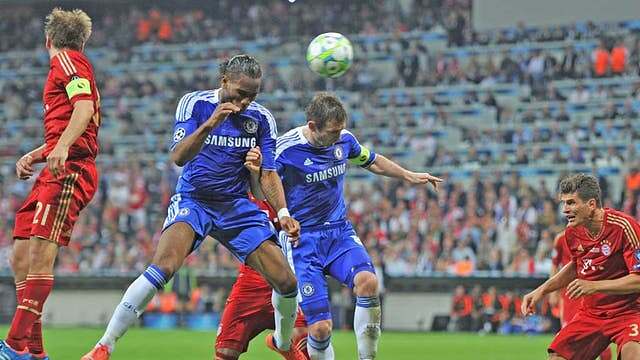
Few moments define a club like Drogba’s night in Munich.
In the 2012 Champions League final, he first dragged Chelsea level with a powerful header, then later held his nerve to smash home the winning penalty that finally delivered the club’s first European Cup.
Drogba was always that kind of player, the bigger the stage, the more he thrived, whether it was a final, a derby or a title decider.
Away from the pitch, he also showed leadership off it, using his voice to help ease political tension back home in Ivory Coast after a troubled election.
That combination of match-winning skill and social influence is rare. A player built for big games who used his status to help his country as well as his club.
2.) George Weah (Liberia)
Weah’s career is unique for two reasons. First, he is the only African male player to win both the Ballon d’Or and FIFA World Player of the Year (1995), a recognition that remains a high watermark for African talent in Europe.
Secony, he parlayed football fame into political life and became Liberia’s president. On the pitch he was a runner and dribbler of the first order, a striker who could score stunning solo goals and change games.
Off the pitch, his path into national leadership makes his legacy different from any other footballer on this list.
Global individual recognition and a rare move from football star to national leader is part of the main reason for him to make history.
1.) Roger Milla (Cameroon)
Roger Milla tops this list not because his European club stats towered over everyone else, but because of what he did for perception.
At the 1990 World Cup he scored with a smile and a corner-flag dance that people remembered long after the tournament.
Cameroon’s run to the quarter-finals that year was the first time many Europeans and scouts sat up and re-evaluated African football.
Milla’s performance put a spotlight on African players globally, and that attention helped force European clubs to look to Africa more seriously.
His World Cup moments changed how the game looked and who clubs wanted to recruit.
He made the world watch African football and helped open the scouting floodgates that followed.
African Football Legends: Quick Profiles, Key Facts, and Unforgettable Moments
These are the kind of memories fans argue about in pubs, they’re human, immediate and easy to picture.
Nwankwo Kanu: The comeback months after heart surgery when fans realised his career wasn’t over. Foundation work saved hundreds of lives.
Michael Essien: That first-time thunderbolt in the Champions League that moments later had fans replaying it on phones.
Yaya Touré: Driving runs from deep into the City box that changed the result in a league title push.
Bruce Grobbelaar: The “spaghetti legs” penalty antics that unsettled opponents in a European Cup final.
Sadio Mané: The small-field celebrations for his hometown projects and the quiet hospital openings in Senegal.
Mohamed Salah: The run of unstoppable matches in his debut Liverpool season when the whole league seemed to bend around him.
Samuel Eto’o: Final goals on big nights that completed trebles and left defenders in the dust.
Didier Drogba: The 88th-minute header and the penalty that sealed Chelsea’s first Champions League win.
George Weah: The solo runs for AC Milan that made highlight reels and a Ballon d’Or speech that still gets quoted.
Roger Milla: The corner-flag dance at the 1990 World Cup that made the world notice Cameroon.
African Players Fans Can’t Forget
There are players who could easily be in a top ten list for different reasons. Including a short honorable-mentions section keeps the conversation alive.
Riyad Mahrez — Leicester miracle and Premier League Player of the Season.
John Obi Mikel — quiet midfield strength who helped Chelsea win the Champions League.
Laurent Pokou — a historic scorer in France during the 1960s–70s whose name still comes up with older fans.
Rabah Madjer — famous Porto goal in a European final that lives in highlight reels.
Tony Yeboah — thunderbolts in England that defined a club’s era.
How these giants shaped modern European football
These players didn’t just win games. They changed systems, budgets and ways of thinking.
1. Scouting and recruitment: Before the likes of Milla and Weah grabbed attention, African players were occasional signings.
After those performances, clubs invested in scouts, academies and partnerships across Africa. Today the pipeline is much clearer and much more competitive.
2. Transfer economics: African players became assets, not curiosities. Clubs began spending serious money, building contracts and selling players the market grew.
3. Cultural influence: Players brought new celebrations, styles and a different sense of flair to Europe. That mix made club cultures more global, and it changed how stadiums and TV audiences reacted to different styles.
4. Inspiration: The clearest impact is simple: kids in towns across Africa now dream of playing in Europe because they saw Milla or Weah on TV.
That inspiration leads to more academies, more investment at home, and more players on European rosters now than decades ago.
Facing Racism, Hardship, and the Resilience That Made Them Legends
These stories are not just about praise. Many of the players on this list faced racism, poor contracts, and harsh travel and work-permit rules.
The pathway was rarely clear, the first players often arrived with little support beyond a club badge and a small signing fee.
That meant success required skill, yes, but also guts, stubbornness and the ability to stay focused through loneliness and abuse.
That context matters when you call someone a pioneer. They didn’t just score goals but they stood up to a system and made the next player’s life a bit easier.
How African talent moved into Europe
• 1950s–70s: African players in Europe were rare, almost like curiosities. A few stars popped up in France or Portugal, but most fans in England, Spain or Italy couldn’t name a single African player. It felt like a closed shop.
• 1980s–90s: Then came the breakthrough. Roger Milla danced his way into World Cup history in 1990, and George Weah showed AC Milan what a world-class African striker looked like. That was the turning point, suddenly Europe had no choice but to pay attention.
• 2000s: By this era, it wasn’t just “a few” players anymore. African stars were winning Champions Leagues, dominating in England, Spain and Italy.
Names like Drogba, Essien and Eto’o weren’t outsiders; they were carrying Europe’s biggest clubs.
• 2010s to today: Now it feels normal. Salah smashing scoring records at Liverpool, Mané leading Senegal to AFCON glory, Osimhen breaking Napoli’s Serie A drought.
Scouts don’t ask if African players can adapt anymore, the only question is who’s next?
This timeline is a simple way to think about how perception became reality: one player, one tournament, one season at a time.
Quotes and short notes from reputable sources
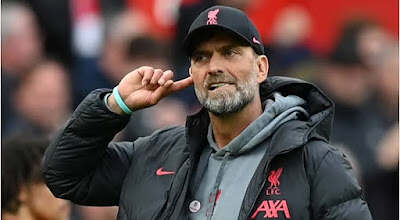
• Jurgen Klopp on Mohamed Salah: Klopp has repeatedly praised Salah’s consistency and impact, calling him one of Liverpool’s most important modern players.
• Nwankwo Kanu on his foundation: Kanu said work that saves lives “means more than football,” pointing to surgeries and outreach his foundation funded.
• Yaya Touré’s awards: Touré earned multiple African Player of the Year awards while carrying clubs like Barcelona and Manchester City, a fact that underlines his continental and club-level influence.
How to spot future African football legends (for scouts, journalists, fans)
If you want to spot a future legend early, watch for five plain signs:
1. Consistency with improvement. Not just flashes, but clear development year to year.
2. Big-game temperament. Does the player still perform when the pressure rises? Big nights matter.
3. Leadership and humility. The players on our list combined personal drive with team sense.
4. Off-field clarity. Is the player grounded? Do they invest in their community? That often marks a long, stable career.
5. Technical adaptability. Europe demands tactical flexibility and players who adapt fast usually climb quickest.
This is practical, not scientific. It’s also why scouts still trust watching, not just stats.
Frequently asked questions
Q: Are modern players like Salah and Mané bigger than these pioneers?
A: They’re bigger in commercial reach and sometimes in trophies. But pioneers changed perceptions and routes into Europe. Both matter.
Q: Do these players still influence football politics?
A: Yes. Weah became a head of state; Drogba has been a national voice; Kanu’s charity work continues.
When you look back at these names, it’s not just about goals and medals. It’s about the doors they kicked open. Without Milla’s corner-flag dance, would scouts have rushed to Africa in the 90s?
Without Weah’s Ballon d’Or, would Europe have taken African strikers seriously? Without Drogba in Munich, would Chelsea’s story feel the same?
Football is funny like that, one moment, one player, one goal can change the whole story for a continent.
Today, when Salah or Osimhen light up Europe, they’re standing on the shoulders of those who came before.
And the next generation, the kids watching from Accra, Lagos, Dakar or Cairo, are already dreaming of being the next name added to this list.
Lists like these will always cause arguments. You’ll probably say I missed your favourite, and maybe you’re right. So who’s in your top five African football legends, and why? Drop it below.

